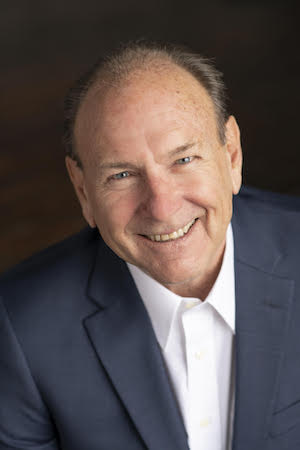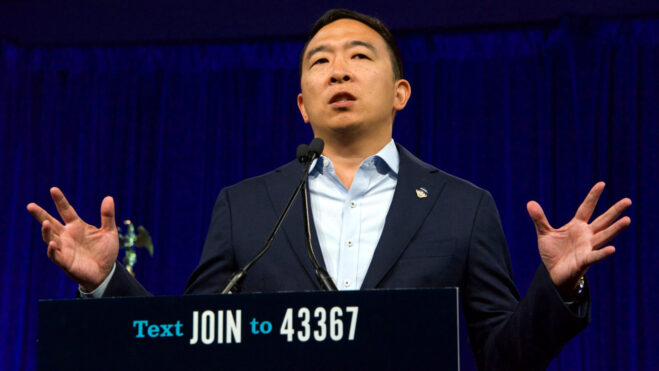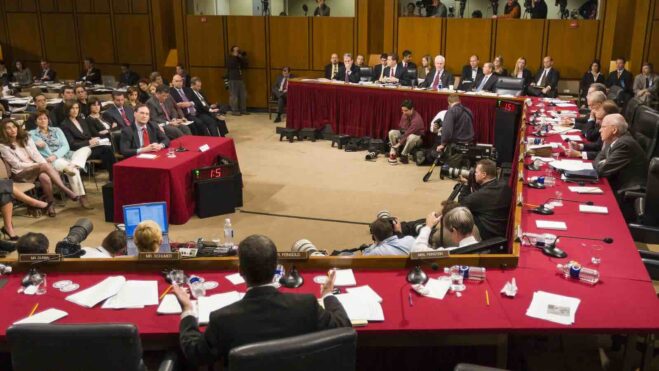Schuetz: Asymmetric Warfare And The Question Of Who Is Looking Out For The Bettors
Asymmetry is introduced when the operators have huge budgets for lobbying, and the betting consumers have essentially nothing.
5 min

Asymmetric warfare is when the two sides of a conflict have material differences in capabilities. For my generation, the Vietnam War was an example in which the most powerful nation on the planet was in conflict with a country that did not possess a high level of war-making assets.
A more recent example would be the conflict in Afghanistan, from which the U.S. completed its exit in August 2021. Again, the most powerful military force on the planet was engaged with an entity with reasonably primitive military capabilities.

In the context of sports betting, asymmetry is introduced when the operators have huge budgets to contribute to politicians and lobbying activities, whereas the betting consumers have essentially nothing. In a world in which politicians shape the laws that govern sports betting, this asymmetry leads one to believe that the issues that are important to sports betting with respect to the consumers often go unheard and unrepresented.
I was fortunate in my life to spend a fair amount of time on the operator’s side of the sports booking business. The most intense of these relationships was when I ran the casino for the Stardust Hotel & Casino on the Las Vegas Strip. The Stardust was an old mob-run joint that had a world-famous and serious book — with an emphasis on the serious. People came to the Stardust because they knew they could get down, and they knew they could get down for a lot of money. They often showed up with bags and briefcases — and those did not contain lunch.
In that brick-and-mortar world, we also had the ability to clearly understand what the bettors wanted, and we knew what the bettors wanted because they were standing right in front of us and telling us. Sometimes, this was done very politely, and sometimes, it was screamed at us with the bettor turning over all the trash cans as he exited the book.
Stardust was an interesting place, and our customer base had a variety of ways of making a point.
This feedback loop does not seem to exist in modern online sports betting. The operators direct a ton of money toward the politicians to shape the nature of the business, and the players have essentially no input. Oh, sure, they can whine on X (Twitter), but that does not seem to be much of a force for change.
Now, it might be nice to contemplate a world where the politicians cared that the bettors were being treated fairly and the processes were being operated transparently. That ship has probably sailed, however, and numerous articles at the national press level indicate that massive amounts of money and resources flow from the operators to the politicians and lobbyists. See here, here, and here.
Dancing for dollars
When I was a child, I had a cast iron bank. It featured a platform with a bear in a skirt on it. When a coin was inserted into a slot and a handle pulled, the bear danced (actually just spun around). That, as much as anything, reminds me of our politicians of today. Don’t expect them to suffer a fit of consciousness and start worrying that the sports betting models are exploitive, unfair, and probably unsustainable — unless, of course, you can put a lot of money in the slot and make them dance for you.
One might then look to regulators to be the vanguard for the world’s bettors. However, as a general rule, I have not found regulators to strongly advocate for the betting consumer. Part of the reason for this is many of these regulatory entities are very new, very inexperienced, and seem to be basically faking it until they can make it.
There is always the threat of capture, too, with regulatory agencies. One does not need to look beyond Nevada to see a situation that often resembles what economists describe as regulatory capture — a situation where the emphasis of the regulator is to further the interests of the operators, full stop.
The Massachusetts Gaming Commission does appear as an outlier in this regard. As it demonstrated with the investigation of Steve Wynn, the MGC can be thorough, transparent, and willing to aggressively pursue the truth. Its commissioners have also stood out recently in their efforts to understand bet limiting in the online sports betting space. The MGC also has a material commitment to transparency.
When the sports betting operators tried to unify and drag the commission into the “back room,” Interim Chairman Jordan Maynard absolutely would not have it. It seems that the MGC is not yet convinced that the operators know what is best for the betting consumer and that those operators should keep all of that secret. It seems the MGC would like all voices to be heard in an open environment.
A request for disclosure
Going back to the notion that one characteristic of the online sports betting industry is its ability to throw massive amounts of cash at politicians and lobbyists, there is another way that regulators might assist betting consumers and the public in understanding what is going on within the industry. This would involve mandating that the licensed firms doing business within the state declare their lobbying and political spending quarterly, and the regulator publishes this information on the agency’s website.
To those of you suggesting that political and lobbying disclosures are now required in all states: Go far, far away, and stay there. To examine the political and lobbying spending for the industry now, one needs to go through state after state and figure out each state’s Rubik’s Cube for recording these types of expenditures. This is painful work, takes forever, is sometimes deceptive, and appears to be designed so as not to be clear and easily accessible.
My sense is that politicians would hate this change, for they want to keep the ways they are lining their pockets a secret — or at least difficult to discern. Moreover, if they think it will be easy for the public to see how much the industry spends to shape gambling policy, the public may become suspicious of that gambling policy. Politicians enjoy talking about the importance of transparency; many don’t want to live by it, however.
If the regulators in the online sports betting space really want to assist the public in understanding the forces that shape gambling policy in the U.S., what better way than ensuring that the public will understand what the industry has paid for that policy? That seems pretty clear-cut.
Supreme Court Justice Louis Brandeis was known for the quote: “Sunlight is said to be the best of disinfectants.” I believe that transparency and good governance can be well served if we understand the financial relationships between our sports betting operators and our sports betting policymakers. One of the biggest beneficiaries would be the public.
Now, if we can just find someone beyond the Massachusetts Gaming Commission who cares.
Richard Schuetz has been involved in the planning process for a non-profit that will represent the voice of the bettor in the sports betting ecosystem of the U.S. He entered the gaming industry working nights as a blackjack and dice dealer while attending college and has since served in many capacities within the industry, including operations, finance, and marketing. He has held senior executive positions up to and including CEO in jurisdictions across the United States, including the gaming markets of Las Vegas, Atlantic City, Reno/Tahoe, Laughlin, Minnesota, Mississippi, and Louisiana. In addition, he has consulted and taught around the globe and served as a member of the California Gambling Control Commission and Executive Director of the Bermuda Casino Gaming Commission. He also publishes extensively on gaming, gaming regulation, diversity, and gaming history.






